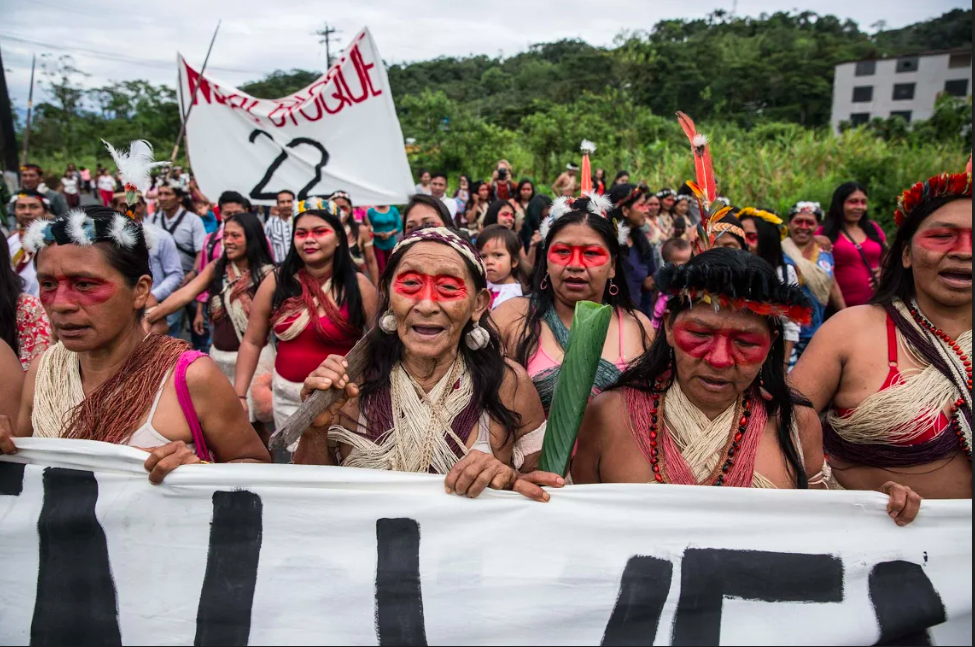UPDATE: RAN has now been able to provide over $400,000 in grants to frontline and Indigenous-led organizations in the Amazon region since last year’s fires thanks to RAN supporters. In 2020, the multiple threats posed by Covid-19 have combined to rapidly amplify the challenges facing these forest peoples, posing an existential threat to many already vulnerable communities. But, amidst the bleak picture of this multi-pronged assault are many hopeful stories of dignified resistance, international solidarity and remarkable resilience. We believe that the best way to prevent the next climate catastrophe is by amplifying the voices and solutions of Indigenous peoples and so we will continue our support, distributing at least another $400,000 in additional grants over the next year to the Amazon region in coordination with our partners at CASA Socio-Environmental Fund, Amazon Watch, Amazon Frontlines and Ceibo Alliance.
ORIGINAL POST: We at Rainforest Action Network (RAN) were among the millions of people worldwide who watched in horror last Fall as massive swaths of the Amazon burned out of control. Fanning the flames was Brazil’s new far-right president, the openly racist and anti-environmental Jair Bolsonaro, who has explicitly advocated the displacement and genocide of the Amazon’s Indigenous peoples and who publicly called for rainforest regions of the Amazon to be cleared for agribusiness and corporate interests.
In the face of this despair, our spirits were buoyed when thousands of people from around the world opened their hearts, and their checkbooks, to offer real time solidarity to the people of the Amazon. After this unprecedented global outpouring, we wanted to follow up to share some of the heartening stories of real world action that have resulted from the use of the funds that were channeled through RAN in the weeks surrounding the fire crisis.
RAN’s Community Action Grants (CAG) program was designed for this kind of moment in history and was built to provide fast turn-around financial support to frontline and often rural Indigenous communities defending their lands. Many of these are groups that face serious challenges seeking funding from more traditional sources. This small grants program is founded on the core understanding that the most effective, efficient, ethical and lasting strategy for protecting rainforests is to uphold the rights of the Indigenous communities who have been stewarding them for generations.
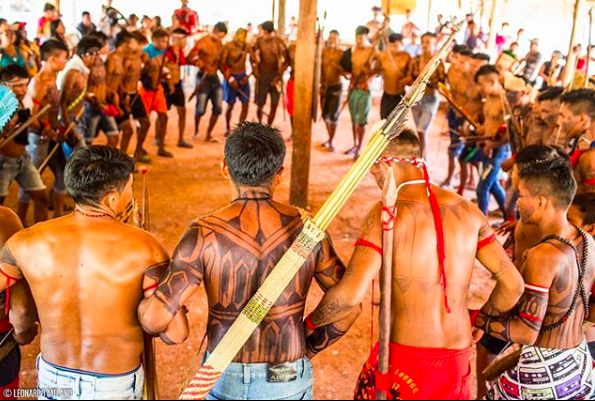
In response to public concern regarding the fires in the Amazon, RAN has been able to provide $150,000 in grants so far to frontline and Indigenous-led organizations, with another $150,000 left to be distributed in the coming months. We acted fast, deferring to our partners at Brazil-based CASA Socio-Environmental Fund and Amazon Watch, who hold relationships and historical understanding that were critical to assessing where emergency funds were most needed and most impactful. From forming fire brigades to directly put out fires, to confronting and stopping illegal activities on their territories despite the great security risks of doing so, to organizing peaceful mass mobilizations in the region, and holding emergency assemblies to strategize and plan courses of action, frontline Indigenous communities called the shots and we all took their lead.
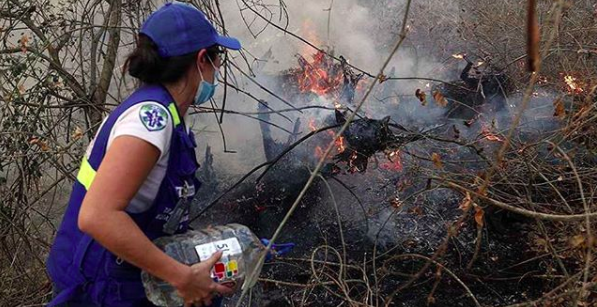
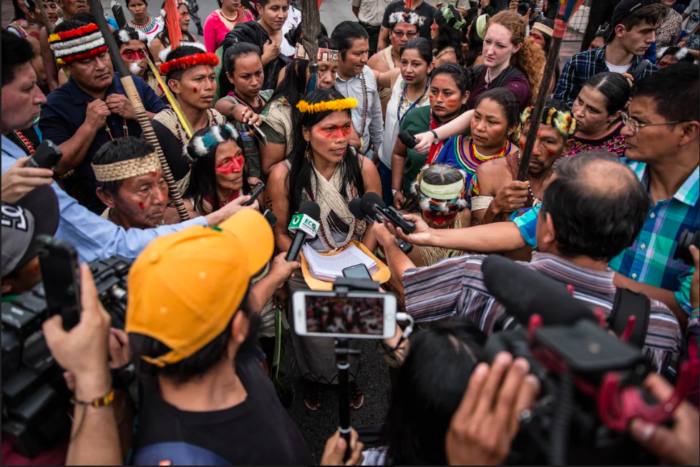
In Brazil, we stood by Indigenous leaders and forest guardians facing escalated threats to their safety and security as Brazilian nationalism and racism were on frightening display. Specifically, we responded rapidly to the needs of the Guajajara Indigenous peoples of the Brazilian State of Maranhão, supporting them to strengthen security infrastructure against increased violence, brutality, and murder. As we witnessed the escalated assault on Indigenous rights, we directed support to the Brazil-wide defenders fund to specifically address threats to Indigenous leaders through rapid response support.
As fires raged through the southern Amazon in Bolivia, impacted Indigenous communities formed fire brigades with minimal resources to fight fires on the frontlines of their territories. By collaborating with well-respected local organizations based in the country’s fire-ravaged lowlands of the southern Santa Cruz region, we delivered funding to the frontlines which provided humanitarian provisions for Indigenous communities affected and displaced by the fires. As some members of Indigenous communities fought fires, other members marched hundreds of miles to the regional capital of Santa Cruz to voice discontent with government policies regarding the fires and agricultural frontier expansion.
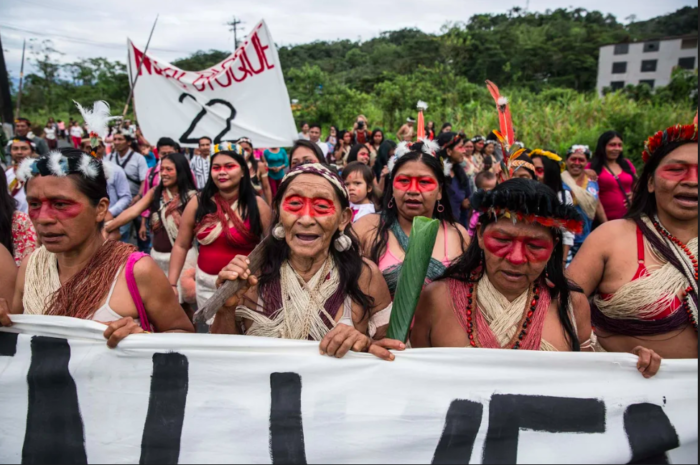
In addition to releasing rapid response funds, RAN deployed funding to further develop Indigenous leadership and organizational capacity of our allies already doing the critical work to prevent the next climate catastrophe. In partnership with our close allies at Amazon Frontlines and the Ceibo Alliance, we supported an Indigenous-led coalition of the Kofán, Siona, Secoya and Waorani People from the northern Ecuadorian Amazon to uphold recent victories, including the protection of 500,000 acres of Waorani rainforest land from oil drilling. We have committed to supporting our allies and their strategy to strengthen the global alliances necessary to confront industry megaprojects and increasingly dangerous political actors that threaten the entire Amazon.
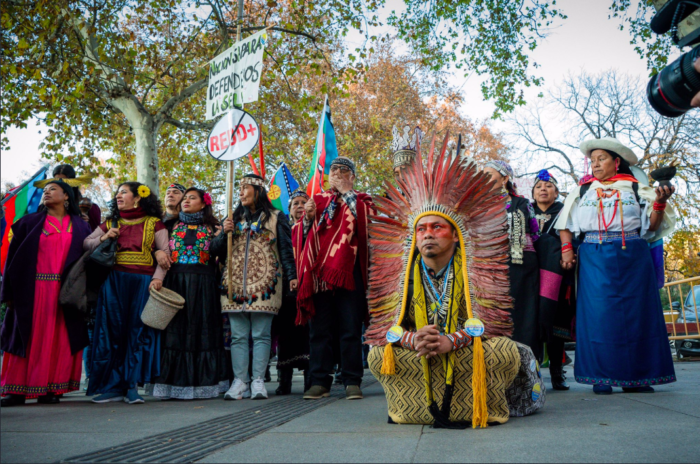
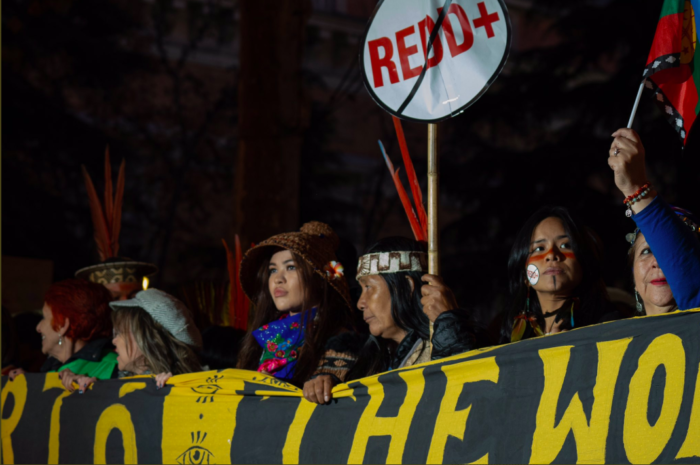
We believe that the best way to prevent the next climate catastrophe is by amplifying the voices and solutions of Indigenous peoples. To this end, we provided the travel support necessary for Indigenous women from the Women Defenders of the Amazon Against Extraction to participate in the Minga Indígena, an international gathering held in Madrid during the UN climate negotiations in 2019. The Minga Indígena provided an alternative forum to promote learning, discussion, and reflection among Indigenous leaders and share updates about how their communities and territories are developing their own solutions to climate change. In addition to supporting Indigenous participation in the Minga Indígena, our grants supported Indigenous-led mobilizations inside and outside the climate negotiations to shine a spotlight on the spiraling human rights and environmental crisis gripping the Amazon and demand immediate action.
As the latest UN reports on the climate emergency have confirmed, Indigenous and frontline communities are the best stewards of the world’s rainforests and the best organizers against climate change. RAN has committed more than $500,000 in additional grants over the next two years directly to groups located in and fighting for their homes in the Amazon. Local and Indigenous communities have been defending their forests, protecting the biodiversity on their lands, and slowing the effects of climate change for years. It is imperative that we continue to support them in the fight, now.
